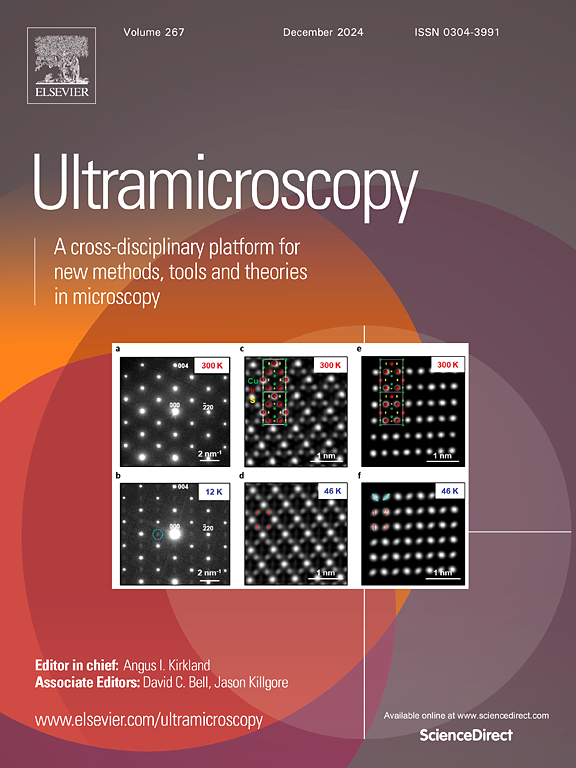从有限探测器响应时间看 STEM 成像中的时间传递函数
IF 2
3区 工程技术
Q2 MICROSCOPY
引用次数: 0
摘要
人们一直希望在扫描透射电子显微镜中实现更快的扫描,以便更好地控制剂量,将环境失真的影响降至最低,并捕捉原位实验的动态变化。扫描控制器和扫描偏转系统的进步使扫描像素停留时间达到几十纳秒。在这种速度下,必须考虑电子探测器的有限响应时间,因为一个电子探测事件产生的信号可能会影响多个像素,从而模糊图像中的特征。在此,我们介绍一种时间传递函数(TTF),用于描述和模拟探测器响应时间对成像的影响,以及将这些影响纳入模拟的框架。本文章由计算机程序翻译,如有差异,请以英文原文为准。
On the temporal transfer function in STEM imaging from finite detector response time
Faster scanning in scanning transmission electron microscopy has long been desired for the ability to better control dose, minimise effects of environmental distortions, and to capture the dynamics of in-situ experiments. Advances in scan controllers and scan deflection systems have enabled scanning with pixel dwell times on the order of tens of nanoseconds. At these speeds, the finite response time of the electron detector must be considered as the signal from one electron detection event can contribute to multiple pixels, blurring the features within the image. Here we introduce a temporal transfer function (TTF) to describe and model the effects of detector response time on imaging, as well as a framework for incorporating these effects into simulation.
求助全文
通过发布文献求助,成功后即可免费获取论文全文。
去求助
来源期刊

Ultramicroscopy
工程技术-显微镜技术
CiteScore
4.60
自引率
13.60%
发文量
117
审稿时长
5.3 months
期刊介绍:
Ultramicroscopy is an established journal that provides a forum for the publication of original research papers, invited reviews and rapid communications. The scope of Ultramicroscopy is to describe advances in instrumentation, methods and theory related to all modes of microscopical imaging, diffraction and spectroscopy in the life and physical sciences.
 求助内容:
求助内容: 应助结果提醒方式:
应助结果提醒方式:


